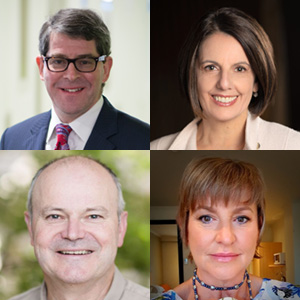The transformative power of science suggests it should play a fundamental role in developing public policy, ensuring science informs debates about issues such as sustainable energy production, ecosystem protection, and genetic modification of food. However, using scientific knowledge to inform policy debate is not straightforward.
According to Dr Tyson Yunkaporta, we live in a ‘Dynamic Universe – because of the diversity within it.’ Tyson belongs to the Apalech Clan in far north Queensland and is a senior lecturer in Indigenous Knowledges at Deakin University. Indigenous knowledge is a dialogue – it’s the yarns, carvings, songs, and dances that change depending on the relationship of the people who are sharing it, where they are, and where they are from. With so many cultures, stories, and points of view, stories of the sky change according to where you stand. ‘Truth is not an empirical thing, but an aggregate of stories and diversity.’ What Westerners call a meteor represents the eye of an evil spirit or death to many Aboriginal groups across northern Australia. Cultural astronomer A/Prof Duane Hamacher has felt privileged to learn how meteors and meteorites are incorporated into Indigenous knowledge systems by Aboriginal and Torres Strait Islander elders around Australia.
Dr Duane W. Hamacher’s work seeks to understand how the first Australians developed and embedded scientific information into their knowledge systems. Working closely with Aboriginal and Torres Strait Islander elders, students, and knowledge custodians across Australia, he listens to their stories, songs, and traditions to learn about Indigenous astronomical and geological knowledge, and understand the connections between sky, land, and sea.
This week’s interviews of short-listed applicants have revealed a compelling array of stories from around the world and, in particular, confirmed many of the project proposal’s underlying assumptions. The general level of science training, expertise and acumen was very good and, with science educators in short supply in our country, plainly an opportunity going to waste.








